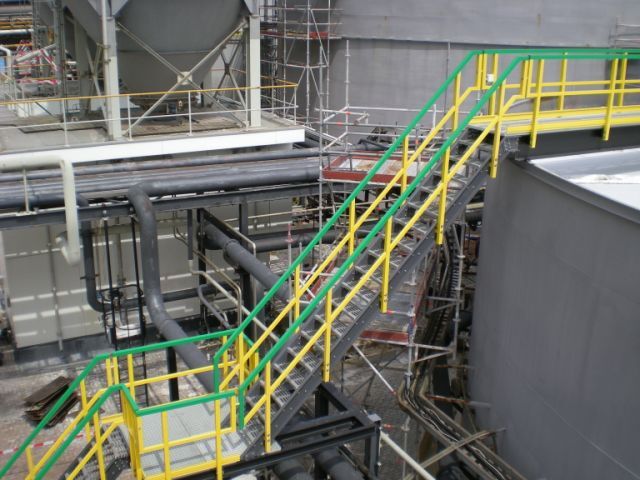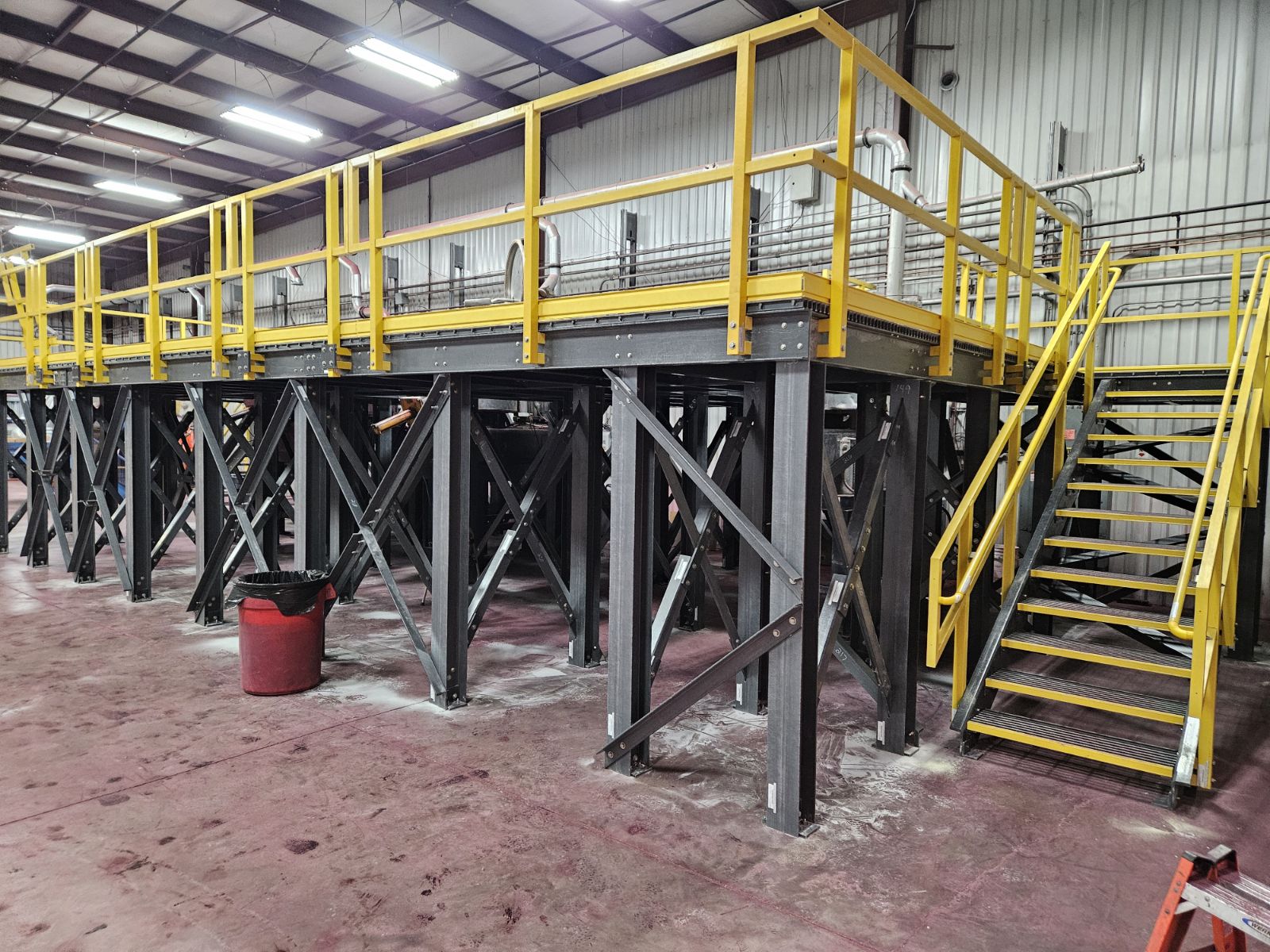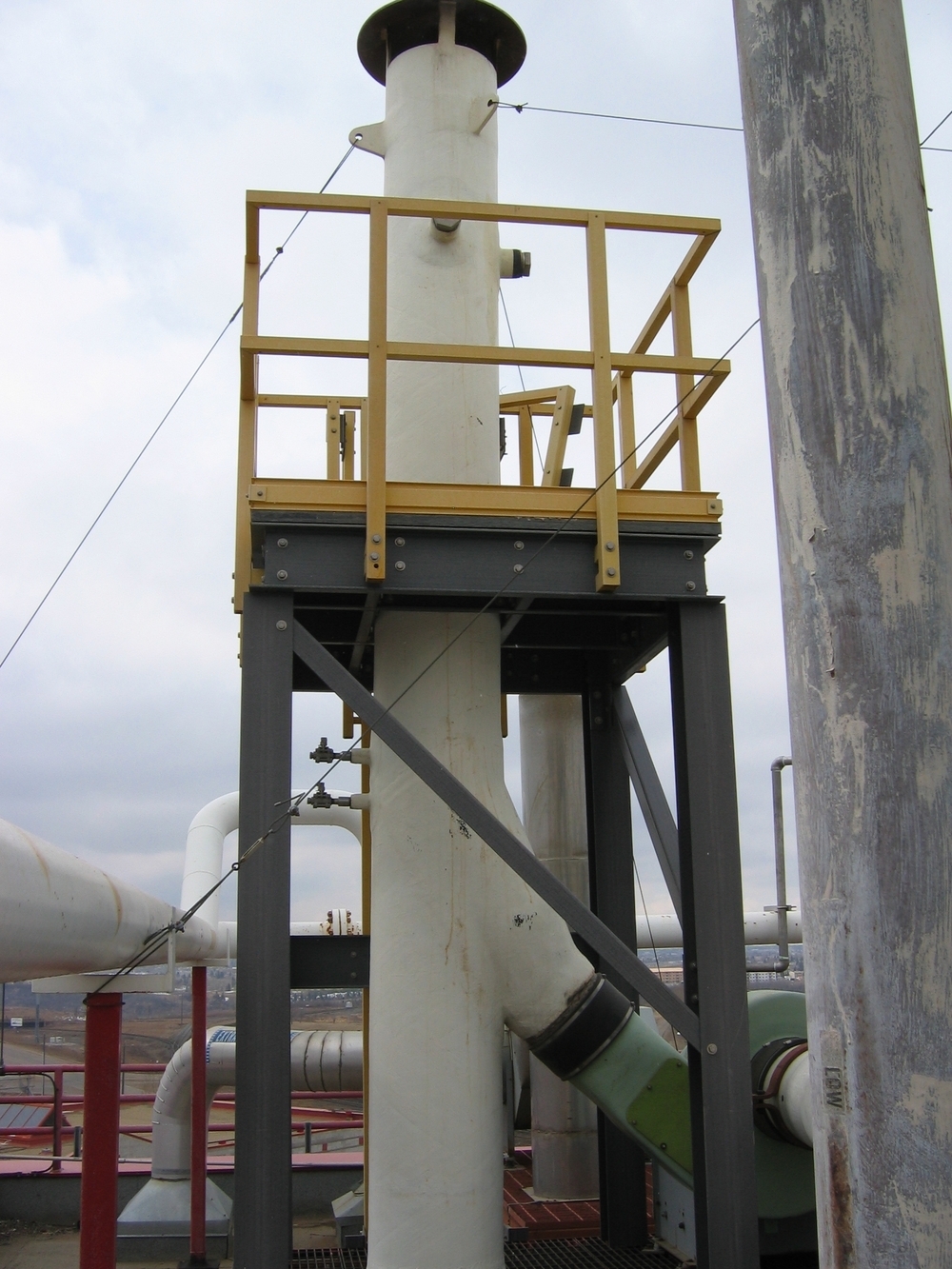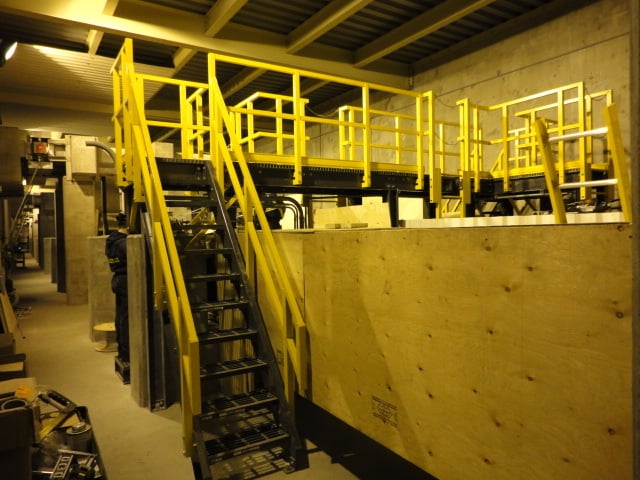Well-designed handrail systems are a cornerstone of safety in any industrial environment. Providing...
Industrial Handrail Systems for Better Ergonomics and Endurance
Well-designed handrail systems are a cornerstone of safety in any industrial environment. Providing essential support and guidance, a robust industrial handrail helps prevent falls and ensures the secure movement of personnel throughout the facility. However, the demands of industrial settings often present a challenge: how do you design a handrail that is not only durable enough to withstand harsh conditions, but also ergonomically sound, minimizing worker strain and fatigue?
This blog post will explore the key considerations in designing industrial handrail systems for improved ergonomics and long-term endurance, highlighting how fiberglass reinforced plastic (FRP) offers a compelling material solution that addresses both critical aspects.

Fibergrate Dynarail guardrail in chemical plant
The Importance of Ergonomics in Industrial Handrail Design
Ergonomics plays a vital role in the design of industrial handrail systems. Implementing ergonomic principles is not merely about comfort; it is a direct investment in the health, safety, and productivity of the workforce. Poorly designed workplace can contribute to a range of issues, including increased worker fatigue and strain, a higher risk of musculoskeletal disorders (MSDs) affecting the hands, wrists, arms, shoulders, and back, and ultimately, a decrease in overall workplace safety.
Designing an industrial handrail with ergonomics in mind involves several key considerations. Proper handrail height and diameter are essential to ensure a comfortable and secure grip for a wide range of hand sizes. An appropriate grip surface and texture can further enhance safety, especially in environments where gloves are worn or where moisture may be present. Smooth transitions and continuous support along the handrail allow workers to maintain a consistent and natural grip as they move. Furthermore, the design should consider worker body mechanics and natural movement patterns to minimize awkward postures and excessive force exertion.

Handrails and guardrails in a general manufacturing setting
FRP: A Material Solution for Ergonomic and Durable Industrial Handrails
Fiberglass reinforced plastic (FRP) presents a compelling material solution for creating industrial handrail systems that excel in both ergonomics and endurance. Fibergrate's Dynarail/DynaRound Handrail system exemplifies these benefits.
In terms of endurance, FRP demonstrates exceptional resistance to the harsh conditions prevalent in many industrial settings. Its inherent corrosion resistance means it can withstand exposure to a wide range of chemicals, moisture, and even salt, ensuring long-term structural integrity and minimizing the need for replacements. FRP is also impact resistant, capable of absorbing significant forces without permanent deformation, further contributing to its durability. Finally, the low maintenance requirements of FRP translate to significant cost savings and reduced downtime over the lifespan of the industrial handrail system.
Designing Industrial Safety Railing for Specific Environments
The versatility of FRP allows for the customized design of industrial safety railing to suit specific work environments.

Chemical company using a Dynarail handrail
Consider the example of a Canadian Chemical Company that faced ongoing maintenance issues with steel structures due to corrosive process chemicals. They sought a replacement material with a 20-year life expectancy. Fibergrate's FRP molded and pultruded gratings, along with the Dynarail handrail system, offered a lower life cycle cost compared to traditional materials, excellent slip resistance, and far greater chemical resistance than steel, reducing the need for future maintenance. The lightweight nature of FRP also eased installation.

Industrial handrails for aluminum smelting facility
In another instance, Rio Tinto Alcan, an aluminum smelter facility, required non-conductive platforms and protective barriers for their substations. Due to the proximity to transformers, non-conductivity was paramount for worker safety. Fibergrate designed, manufactured, and managed the installation of non-conductive FRP platforms, ladders, staircases, and Dynarail guardrail systems, ensuring the safety of personnel in a critical electrical environment. The ease of pre-assembly at Fibergrate's Design Centre also ensured efficient installation within a strict timeline.
These examples illustrate how FRP industrial-grade handrail systems can be engineered to meet the specific safety, ergonomic, and durability requirements of diverse industrial applications, from chemical processing to aluminum smelting.
Contact Fibergrate today to discuss your specific industrial handrail and industrial safety railing needs. Our experienced team is ready to assist you in selecting the ideal FRP solutions for your facility.
Want to Keep Reading?
Topics: Fiberglass Reinforced Plastic, Stairs, Stair Treads

